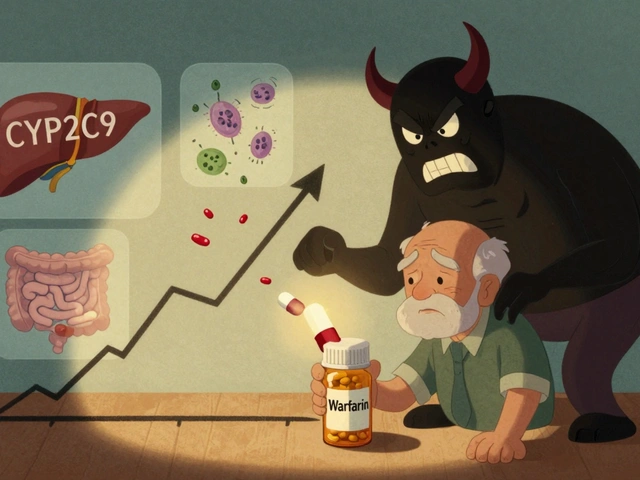5 Alternatives to Clomid in 2025: Exploring New Options for Fertility Treatment
Navigating the world of fertility treatments can sometimes feel like solving a complex puzzle, particularly when traditional options like Clomid don't align with your needs or prove ineffective. As we arrive in 2025, the landscape of fertility treatments is transforming, offering a range of alternatives that might just have the missing piece you need. Below, we'll dive into five notable substitutes for Clomid, each bringing unique advantages and occasional hurdles of their own.
Letrozole
In the realm of fertility treatments, Letrozole has emerged as a popular alternative to Clomid, particularly for individuals with polycystic ovary syndrome (PCOS). Originally approved for breast cancer treatment, Letrozole works as an aromatase inhibitor, which lowers estrogen levels and, in turn, stimulates the ovaries more subtly than its counterparts.
Pros
- High success rates: Many studies indicate that Letrozole is as effective as Clomid, with some research suggesting superior outcomes, particularly for women with PCOS.
- Fewer side effects: Letrozole tends to have milder side effects compared to Clomid, reducing the risk of ovarian hyperstimulation syndrome (OHSS) and severe mood swings.
- Multiple uses: Besides aiding ovulation, Letrozole also plays a vital role in reducing certain estrogen-related cancers, making it a dynamic option in fertility management.
Cons
- Off-label use: Letrozole isn't officially approved for fertility treatment in many regions, which could lead to insurance complications and availability issues.
- Potential bone density impact: Prolonged use has been linked to decreased bone density, necessitating careful monitoring, especially for individuals with pre-existing conditions affecting their bones.
- More frequent doctor visits: Monitoring is essential to gauge ovarian response, often resulting in additional clinic appointments, which could be cumbersome or costly.
In some compelling studies, Letrozole has shown a higher rate of live births compared to Clomid, making it an attractive choice for many. However, it's pivotal to discuss its potential impacts thoroughly with healthcare providers, especially considering its off-label use in many cases, which could influence accessibility.
Gonadotropins
Gonadotropins have emerged as a potent alternative to Clomid in recent years, especially for those who haven't found success with oral fertility medications. These injectable hormones, including Follicle Stimulating Hormone (FSH) and Luteinizing Hormone (LH), work directly on the ovaries to stimulate ovulation, rather than on the brain like Clomid does. This direct approach can be a game-changer for some women, unlocking new paths to pregnancy when other treatments fall short.
Pros
- Gonadotropins boast a higher success rate compared to oral medications for those with unexplained infertility.
- They offer greater control over the ovulation process, enabling precise timing for intercourse or insemination.
- Particularly beneficial for women with polycystic ovary syndrome (PCOS) or those who haven't responded to oral medications.
- Can be used in combination with assisted reproductive technologies like IVF to boost success rates.
Cons
- The requirement for injections can be daunting and uncomfortable for some individuals.
- There's a heightened risk of multiple pregnancies, given the potent stimulation of the ovaries.
- Monitoring and treatment can become costly and time-intensive, involving frequent doctor visits and scans.
- Potential for side effects such as ovarian hyperstimulation syndrome (OHSS), which can be serious if not managed properly.
The complexity and power of gonadotropins illustrate a pivotal point in fertility treatments: sometimes, a more intensive approach yields the greatest results. This method allows for tailored dosing and response monitoring, making it a bespoke fertility strategy for those who've struggled with oral medications.
| Success Rate | Cost (per cycle) |
|---|---|
| 50-60% | $1,500 - $5,000 |
Overall, gonadotropins are a significant step forward in reproductive medicine, providing hope and tangible results for many aspiring parents. While the path may seem demanding, the potential outcome makes it a consideration worth exploring for those on the fertility journey.

Tamoxifen as a Fertility Treatment in 2025
As a trusted name in the realm of oncology, Tamoxifen might seem like an unusual choice for fertility treatment. However, its ability to modulate estrogen receptors offers promising potential in the fertility field, especially for those who have found Clomid lacking. Its alternative application has been an interesting development over the last few years, mainly because Tamoxifen works by blocking estrogen receptors, stimulating the release of hormones that promote ovulation.
Pros
- Versatile Treatment: Tamoxifen, originally designed for cancer therapy, serves a dual purpose by also promoting ovulation in women facing fertility challenges.
- Clomid Alternative: It is particularly beneficial for women who have not responded to Clomid due to Tamoxifen’s distinct mechanism of action.
- Hormonal Balance: By affecting estrogen receptors, Tamoxifen reduces the risk of estrogen-related side effects, which can be common with other fertility drugs.
Cons
- Side Effects: While often milder than those of traditional fertility medications, side effects such as hot flashes and mood swings may still occur.
- Limited Research: As a newer treatment for infertility, comprehensive long-term studies are still ongoing, making some healthcare providers cautious.
- Individual Effectiveness: The success rate can vary, requiring a tailored approach depending on the individual's specific fertility challenges.
Tamoxifen offers a refreshing alternative to traditional fertility treatments, yet it requires careful consideration and expert consultation. Exploring its benefits and understanding its limitations can be pivotal for those planning their next step in their fertility journey.
Statistics and Current Research
Recent studies have shown promising data regarding Tamoxifen's effectiveness in inducing ovulation, particularly in women who exhibit resistance to Clomid. Research papers highlight its ovulation induction success rate at nearly 70% in specific patient groups.
Metformin: A New Player in Fertility?
Originally developed as a treatment for type 2 diabetes, Metformin is gaining traction in the world of fertility, particularly among women diagnosed with polycystic ovary syndrome (PCOS). This condition often results in insulin resistance, which can impact ovulation. By addressing these insulin irregularities, Metformin is opening doors for those struggling to conceive.
While Clomid primarily focuses on stimulating ovulation directly, Metformin works a bit differently. It helps to regulate insulin levels, which can, in turn, promote regular ovulation cycles. This indirect approach may seem roundabout, but for many women, it's been a game changer.
Pros
- Effective in improving insulin sensitivity, crucial for those with PCOS.
- Can restore regular menstrual cycles without the use of hormone-based treatments.
- Might be less likely to cause multiple pregnancies compared to Clomid.
- Potential benefits for metabolic health and weight management, especially in those with insulin resistance.
Cons
- May cause gastrointestinal side effects, such as nausea and diarrhea, especially when first starting the treatment.
- Requires a longer duration to see fertility benefits compared to more direct methods like Gonadotropins.
- Less effective for women without insulin resistance-related issues.
Many studies highlight Metformin's potential beyond just managing blood sugar levels. In one recent study from a renowned fertility clinic, about 30% of women with PCOS who took Metformin achieved pregnancy within six months, underscoring its potential as a powerful tool for fertility enhancement.
Of course, Metformin doesn't guarantee results for every scenario. Its success largely hinges on the presence of PCOS and related insulin issues. But for those falling into this category, it represents a promising alternative that combines fertility improvement with broader health benefits.

Acupuncture
In the quest for fertility treatments beyond the pharmacological realm, acupuncture presents itself as a centuries-old practice with a modern twist. Increasingly embraced by healthcare providers around the globe, acupuncture is believed to enhance fertility by improving blood flow to reproductive organs, reducing stress, and balancing the body's energy, or qi, according to Traditional Chinese Medicine.
Intriguingly, a number of studies from the early 2020s have drawn connections between acupuncture and improved pregnancy rates, particularly when used alongside conventional treatments. Although the scientific mechanisms remain partially elusive, it is suggested that acupuncture may influence hormonal pathways that affect ovulation and fertility.
Pros
- Non-invasive treatment: Unlike many medical interventions, acupuncture is minimally invasive and typically causes little discomfort.
- Holistic approach: Beyond fertility, acupuncture can address general health issues such as stress and anxiety, offering a comprehensive wellness approach.
- Few side effects: When performed by a licensed practitioner, acupuncture tends to have minimal side effects, making it a gentle option for many.
Cons
- Varied results: While some individuals report significant benefits, others may not experience measurable changes in fertility through acupuncture alone.
- Requires ongoing sessions: Achieving results often necessitates consistent weekly visits over a period, which can add up in time and financial investment.
- Lack of precision in mechanisms: The scientific basis for how acupuncture impacts fertility is still nebulous, leaving some skeptical about its efficacy.
Key Insights
For those exploring Clomid alternatives, acupuncture represents an intriguing, integrative path forward. It's often used in conjunction with other fertility therapies, demonstrating stronger outcomes in these combinations. For instance, a promising synergy exists when acupuncture is paired with IVF treatments.
Acupuncture's role in fertility may not be clearly defined by Western medicine standards, yet its growing popularity suggests a deeper cultural and holistic resonance with those seeking gentle and supportive care in their fertility journeys.







12 Comments
Dipankar Kumar Mitra
January 30, 2025 at 15:02
Reading about the Clomid alternatives feels like opening a philosophical textbook on choice and destiny. Each drug or therapy is a branch on a tree that we, in our desperation, clutch onto like a lifeline. Letrozole whispers that science can bend hormones without the drama of clomiphene, and that notion excites the soul. Gonadotropins roar like a thunderclap, offering power at the cost of needles and appointments. Tamoxifen, borrowed from oncology, reminds us that medicine is a shared garden where tools are repurposed for new harvests. Metformin, the quiet insulin whisperer, shows that metabolic balance can be the hidden key to conception. Acupuncture, the ancient art, nudges us to consider the subtle currents of energy that modern labs ignore. Yet every option carries a shadow: insurance hurdles, side‑effects, and the emotional toll of trial and error. The reality is that fertility is not a linear equation but a chaotic dance between biology and hope. When the body resists, we must listen, adapt, and sometimes surrender to a different rhythm. The brave ones will combine treatments, weaving Letrozole with acupuncture, or pairing gonadotropins with meticulous monitoring. Others will embrace the slow patience of Metformin, trusting that steady insulin control will eventually coax an ovulation. No single path guarantees success, but each alternative expands the map of possibilities. In the end, the journey teaches us resilience, humility, and the stubborn belief that another life can emerge from perseverance. So, whether you choose a pill, an injection, or a needle‑pointed session, remember that the choice itself is a testament to the fierce love that fuels this quest.
Tracy Daniels
February 4, 2025 at 04:08
Thank you for sharing this comprehensive overview – it’s a great starting point for anyone feeling lost in the fertility maze. 🌱 Remember that each option works differently depending on individual health factors, so a thorough endocrine evaluation is essential before deciding. Letrozole often shines for PCOS patients, while gonadotropins can be a lifesaver when oral meds fall short. Metformin’s metabolic benefits shouldn’t be overlooked, especially if insulin resistance is part of the picture. And don’t discount the calming power of acupuncture; many couples report reduced stress alongside improved outcomes.
Hoyt Dawes
February 8, 2025 at 17:13
Honestly, this list reads like a marketing brochure for anyone who can’t afford real results.
Jeff Ceo
February 13, 2025 at 06:19
I appreciate the optimism, but it’s crucial to stress that “thorough endocrine evaluation” isn’t a trivial recommendation – many clinics skim this step. Patients deserve transparent data on success rates before spending thousands. Let’s keep the conversation grounded in evidence, not just hopeful anecdotes.
David Bui
February 17, 2025 at 19:24
Alright folks let’s cut the fluff gonadotropins are basically the high‑octane fuel for ovulation they work fast but they come with a price tag and a needle you’re not a fan of injections you’ll feel the sting and the monitoring can be a nightmare but the payoff can be worth it if you’re after higher success rates Also let’s not pretend Letrozole is a miracle it’s great for PCOS but off‑label use can cause insurance headaches Metformin is cheap and safe for insulin issues yet it takes months to see any effect Acupuncture feels nice but the science is still shaky so pick what fits your budget and comfort level
Alex V
February 22, 2025 at 08:29
Oh sure, because the pharma giants are secretly auditioning us for a reality TV show where the prize is a bottle of “mystery hormone cocktail” and a side of anxiety. 🎭 They want us to juggle needles, pills, and ancient needles while they sit on a throne of patents. If you think Metformin is just a cheap sugar‑fix, maybe you missed the tiny microchips they embed in every tablet to track ovulation cycles. And don’t get me started on acupuncture – it’s probably a covert operation to harvest our chi for corporate energy drinks. Bottom line: trust nobody, read the fine print, and keep your wallet closed.
Robert Jackson
February 26, 2025 at 21:35
Look, I’m sick of all this foreign mumbo jumbo being pushed on us. Our own doctors have simple methods that work without all the fancy names. The US pharma industry loves to sell us overpriced pills while ignoring real solutions that happen right here. If you want success, stay local and stop chasing European trends. It’s common sense, innit?
Maricia Harris
March 3, 2025 at 10:40
Darling, your contempt for evidence‑based medicine is as dramatic as a daytime soap opera and just as uninformed. While you’re busy pointing fingers, countless couples are actually benefitting from those “foreign” treatments you dismiss. Let’s not pretend that “simple methods” alone can solve complex reproductive issues. You sound like a guru stuck in the past, refusing to acknowledge the progress made worldwide. Maybe if you stopped whining you’d see the bigger picture.
Tara Timlin
March 7, 2025 at 23:46
If you’re navigating these alternatives, start by mapping your specific diagnosis – PCOS, insulin resistance, unexplained infertility each calls for a tailored approach. For PCOS, Letrozole has consistently outperformed Clomid in recent trials, offering higher live‑birth rates with fewer mood swings. Metformin works best when you have a high HOMA‑IR score; it not only improves ovulation but also supports weight management, which can be a game‑changer. Gonadotropins are the power‑house option when oral agents fail, though they demand rigorous monitoring to avoid OHSS and multiple gestations. Tamoxifen remains a niche choice, useful for patients who can’t tolerate aromatase inhibitors, but keep an eye on the limited long‑term data. Acupuncture can be a valuable adjunct; schedule at least six sessions beginning a month before stimulation to maximize any potential benefit. Always discuss insurance coverage early – injectable therapies often have separate approvals, and off‑label drugs like Letrozole may need prior authorization. Lastly, keep a symptom journal: track mood, side‑effects, and cycle changes to provide your clinician with concrete data for adjustments. Communication with your fertility specialist is key – they can help you pivot quickly when something isn’t clicking. Remember, the best plan is the one that balances efficacy, safety, cost, and your personal comfort.
Jean-Sébastien Dufresne
March 12, 2025 at 12:51
Wow, what a thorough rundown, I’m blown away, 😊 your checklist hits every angle, from diagnostics, to meds, to cost, to emotional tracking, and even the subtle art of acupuncture timing – it’s practically a fertility GPS, guiding us through the labyrinthine options, and I love how you emphasize insurance early, because who wants surprise bills, right? Let’s all take notes, stay proactive, and keep the conversation alive!
Patrick Nguyen
March 17, 2025 at 01:57
Indeed, the intersection of endocrinology and assisted reproduction warrants meticulous scrutiny. One must weigh efficacy against potential systemic repercussions.
Patrick Bread
March 21, 2025 at 15:02
Sure, because everyone has time to dissect every hormone pathway while waiting for a baby.